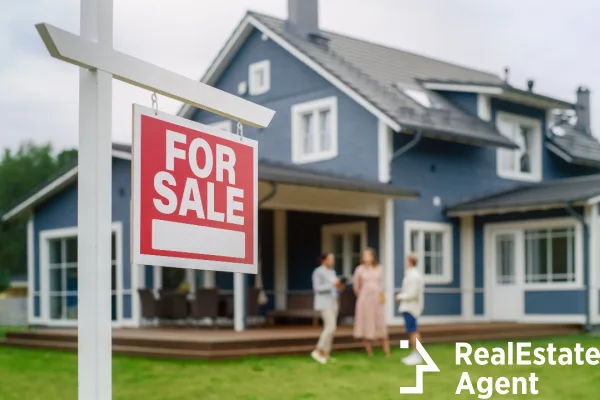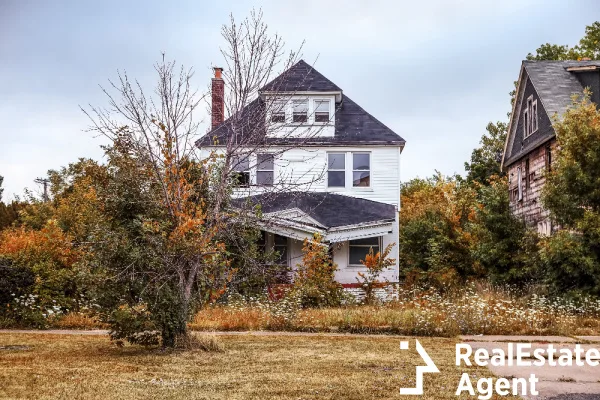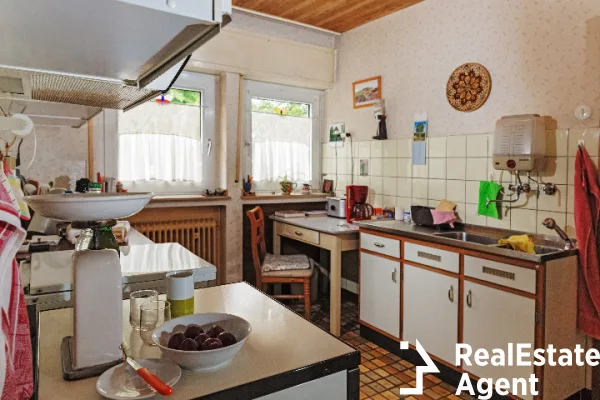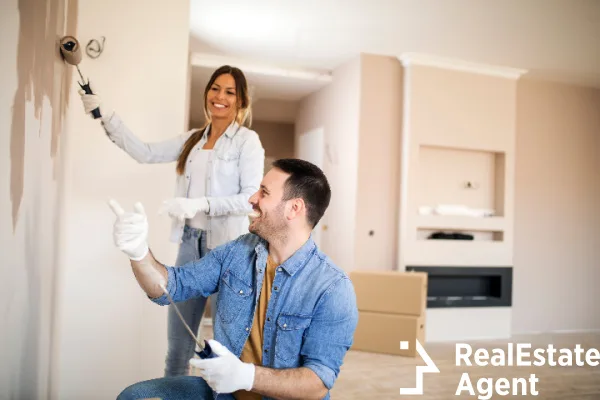 What stops a house from selling? It’s a question that often looms in the minds of both homeowners and real estate agents. The real estate market can be a fickle beast, and sometimes, even the most picturesque properties find themselves stuck in a perplexing state of limbo. So, when to worry about your house not selling?
What stops a house from selling? It’s a question that often looms in the minds of both homeowners and real estate agents. The real estate market can be a fickle beast, and sometimes, even the most picturesque properties find themselves stuck in a perplexing state of limbo. So, when to worry about your house not selling?
Let’s unravel this enigmatic puzzle one piece at a time. Worrying about not selling your house is a conundrum that arises when days turn into weeks and weeks into months without a single offer in sight. It’s as if your beloved abode has become a protagonist in a real estate thriller, struggling to find its happy ending.
So, what stops a house from selling, you ask? Well, there’s a laundry list of potential culprits. Perhaps it’s the outdated avocado green kitchen that hasn’t entirely made a comeback. Or maybe it’s the overgrown jungle that once was a garden, leaving potential buyers to wonder if they’ll ever see the light of day again. And let’s not forget about the ghostly presence of foul odors and the pet stuff that can send potential buyers running for the hills.
In this exploration of what stops a house from selling, we’ll dive into the pitfalls and quirks of the real estate world and provide some sage advice on when to worry about a house not selling and when to take action to turn the tides in your favor.
Factors that could keep a house from selling
 Selling a house can be both an exciting and nerve-wracking experience. You’ve listed your property, prepared it for viewings, and eagerly awaited those offers. But what stops a house from selling, and what are the factors that could keep it from selling?
Selling a house can be both an exciting and nerve-wracking experience. You’ve listed your property, prepared it for viewings, and eagerly awaited those offers. But what stops a house from selling, and what are the factors that could keep it from selling?
Overpriced property
One of the most common culprits when it comes to what stops a house from selling is pricing. If you’ve overpriced your property, it might stay on the market for far too long. A key rule of thumb is researching the local market and working with a real estate agent to set a competitive and realistic price. When to worry about house not selling? When your price tag is pushing potential buyers away.
Neglected curb appeal
First impressions matter. A shabby exterior, an unkept garden, or a damaged roof can be significant turn-offs for potential buyers. If your house doesn’t look appealing from the outside, what stops a house from selling is the lack of interest it generates. When to worry about the house not selling? When your curb appeal is far from charming.
Clutter and personalization
Homebuyers want to envision themselves in your space, but personal clutter can obstruct their imagination. Excessive personal items, unique decor, or strong odors can hinder sales. When to worry about a house not selling? When your home’s personality is overpowering the potential for new owners to envision their own. We’re not necessarily suggesting emptying your house before selling it, but a clutter-free interior will surely attract more buyers.
Inadequate marketing
Content marketing is king, and this couldn’t be more accurate in real estate. If your property is not effectively marketed, it may not get the needed exposure. High-quality photos, detailed descriptions, and online listings are essential. What stops a house from selling? Poor marketing. When to worry about house not selling? When it’s not getting the online and offline attention it deserves. A good rule of thumb is to check into market trends and buyer preferences before starting your marketing strategy.
Outdated interiors
 A house stuck in the past can need help attracting modern buyers. Outdated kitchens, bathrooms, or flooring can be a turn-off. If your interior design is a blast from the past, don’t expect to have homebuyers knocking on your doors.
A house stuck in the past can need help attracting modern buyers. Outdated kitchens, bathrooms, or flooring can be a turn-off. If your interior design is a blast from the past, don’t expect to have homebuyers knocking on your doors.
Lingering repairs
Unaddressed maintenance issues can raise red flags for potential buyers. Leaky faucets, electrical problems, or a damaged roof can make them wonder what else is wrong with the property. What stops a house from selling? Delayed repairs. When to worry about a house not selling? When you haven’t fixed these issues promptly.
Selling a house that needs repairs
A common question that often arises in homeowners' minds is what to fix when selling a house. The first thing to understand is that what stops a house from selling isn’t necessarily the repairs themselves but the perception of those repairs. When potential buyers walk through the front door, they look for a place to call home, not a never-ending DIY project. If your house is in disarray, it’s time to worry about a house not selling and start remodeling your home.
But before you panic, remember that “as-is” homes have their unique appeal. Some buyers are looking for the potential to make a place their own. So, when to worry about house not selling? Only when you don’t tap into that potential.
One way to overcome the “what stops a house from selling” dilemma is to address the most critical repairs. Focus on the essentials like fixing leaky faucets, repairing a damaged roof, and updating electrical systems. Taking care of these issues eliminates the significant concerns that might make buyers worry about a house not selling.
Should I sell my house as is or fix it up?
 You see, when it comes to selling a house, one of the primary pitfalls of a stalled sale is the property's condition. What stops a house from selling more effectively than a leaky roof, a creaky floor, or a kitchen stuck in the 1970s? These pitfalls can turn away potential buyers faster than you can say “property value.” But there’s more to the story than meets the eye.
You see, when it comes to selling a house, one of the primary pitfalls of a stalled sale is the property's condition. What stops a house from selling more effectively than a leaky roof, a creaky floor, or a kitchen stuck in the 1970s? These pitfalls can turn away potential buyers faster than you can say “property value.” But there’s more to the story than meets the eye.
Let’s consider the “sell as is” approach. There’s a certain charm in the idea of listing your home with all its quirks, imperfections, and wear and tear on full display. After all, who needs to worry about costly repairs, right? Well, hold your horses - there’s a time and place for this strategy.
When to worry about house not selling as is? Well, if your property has more issues than the city has traffic jams, you might want to consider rolling up your sleeves or calling in the pros. A cracked foundation, outdated electrical systems, or plumbing nightmares can indeed stop a house from selling, no matter how much you romanticize its “vintage” character.
On the flip side, there are situations where selling a house as it is can be a stroke of genius. A quaint fixer-upper in a hot market might attract savvy buyers looking for a DIY home improvement. In this case, the peeling wallpaper, shag carpet, and avocado-green appliances become charming relics of a bygone era. What stops a house from selling in this scenario? Perhaps nothing! It’s all about understanding the real estate process and the potential buyer’s desires.
Should I empty my house before selling it?
Now that we’ve explored what stops a house from selling and when to worry about house not selling, it’s time to address another common question that arises: Should I empty my house before selling it? The answer isn’t one-size-fits-all.
In most cases, it’s advisable to declutter and depersonalize your space to make it more appealing to a broader range of buyers. This step can help potential buyers see the full potential of your home and avoid some of the common pitfalls that stop houses from selling. A neutral, clean, and well-staged home is more likely to attract offers and sell faster.
However, be mindful of going to the extreme and leaving your home feeling sterile and lifeless. A fine balance is key. Ultimately, the decision depends on your specific situation and your real estate agent’s advice.
Selling house repair allowance
 When to worry about house not selling is a question that plagues many homeowners. Your property might be in an attractive neighborhood, have a spacious backyard, and even flaunt a pristine interior. Still, that one lingering issue could send potential buyers running faster than a gazelle escaping a lion.
When to worry about house not selling is a question that plagues many homeowners. Your property might be in an attractive neighborhood, have a spacious backyard, and even flaunt a pristine interior. Still, that one lingering issue could send potential buyers running faster than a gazelle escaping a lion.
Let’s face it: few people want a project house. When buyers walk into your home, they want to envision their lives without the haunting specter of repair costs looming over them. So, how do you tackle this dilemma? The answer lies in the art of selling house repair allowance.
The first thing to understand is that not all house repairs are created equal. Some issues might be glaring, like a damaged roof or a sagging floor, while others may be more discreet, lurking beneath the surface like a ninja in the shadows. Recognizing and addressing these trouble spots can make all the difference in attracting potential buyers. Instead of sweeping these issues under the rug, consider offering a repair allowance to your potential buyers. This is like a golden ticket that says, “Here’s some money to fix these problems, and you can make this house your dream home.”
By providing a repair allowance, you shift the focus from “what stops a house from selling” to “opportunity.” It’s a savvy way to address issues without sinking a fortune into repairs upfront. Plus, it puts the buyer in the driver’s seat, allowing them to customize the repairs to their taste.
Final thoughts
Understanding what stops a house from selling is essential in the high-stakes real estate game. From dusty relics to leaky faucets, countless factors can send potential buyers scurrying in the opposite direction. So when to worry about house not selling? Well, it’s not just about location, location, location. It’s also about presentation, pricing, and patience.
If your “For Sale” sign has become a permanent lawn ornament, it’s time to take action. An inflated asking price can be a major culprit in what stops a house from selling, scaring off even the most enthusiastic house hunters. Likewise, neglecting curb appeal or showcasing an interior stuck in the ‘70s time warp can deter buyers. In such cases, a makeover might be your best ally.
Remember, what stops a house from selling is often within your control. So, when to worry about the house not selling? When you’re complacent. Act swiftly, adapt and watch those “Sold” stickers roll in.
















Have a question or comment?
We're here to help.